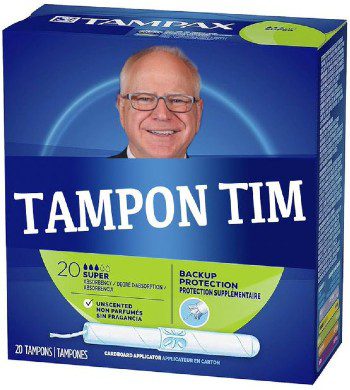Complaints about “media bias” resonate as something meaningful, but not for the reason most people seem to think.
It’s not about partisanship — about a bias in favor of one political party or the other. It’s about Good News and Bad News. When news outlets treat Good News or Bad News as “neutral,” that doesn’t come across as a lack of bias, it comes across as inaccurate and untruthful. It doesn’t seem “disinterested” in the sense of dispassionately uncorrupted, but rather as disinterested in the sense of apathetic and unconcerned about the real-world impact of the story on real people.
 When you report Good News without acknowledging that it is, in fact, Good News you come across as biased against goodness. That just sounds — to use a recently revitalized word — weird.
When you report Good News without acknowledging that it is, in fact, Good News you come across as biased against goodness. That just sounds — to use a recently revitalized word — weird.
News outlets usually get this right when they’re covering something like a natural disaster. “Tornado Destroys Orphanage” will be reported — accurately and correctly — as Bad News. The subhed to that article — “All Children Escape Unharmed” — will be reported as Good News in the context of that Bad News. The piece will, rightly and accurately, celebrate the children’s survival and mourn their loss of a home.
But as soon as there’s any hint of “politics” involved, the reports will take on an uncanny, inhuman aspect that ceases to rejoice with those who rejoice and mourn with those who mourn. The next day’s story — “Governor Denies Aid to Rebuild Orphanage” — will weirdly be treated as a neutral story when it absolutely is not. It’s a Bad News story. Just as the next week’s follow-up — “Bowing to Pressure, Governor Pledges to Rebuild Orphanage” — is a Good News story that will come across as grossly distorted and inaccurate if it is reported neutrally and fails to understand that this is cause for celebration.
The initial, accurate reports about the tornado and the children’s escape will include the voices of those children. They consider their survival to be what it is: Good News. And in this “non-political” story, that perspective will be permitted. But the children’s voices will not be included in the following “political” stories because that might be perceived as taking sides against the governor who is taking sides against them. You can’t have orphans commenting in a story about orphanages because they’re obviously “biased.”
I’ve written about this before, many times. Here’s one of those from a few years back: “Media Bias Should Be Good News.”
That 2017 post includes a different hypothetical that is no longer a hypothetical:
So let’s turn back to the local pages and look at another story. This one involves hungry poor children getting a nutritious hot meal.
That’s Good News, right? I mean, objectively speaking, hungry children getting fed is a Good Thing. If someone fails to recognize that then there isn’t even any point in arguing about the categories of Good Thing and Bad Thing with them. Like the understanding that a family losing their home in a fire is Bad News, the fact that hungry children being fed is Good News shouldn’t require any explanation or defense.
Yet the story of local hungry children being fed is not usually reported as a Good News story. Sometimes it is — if the meal in question is being provided by some innocuous, non-controversial local charity on Christmas Day, then it’s fine. Everyone agrees that’s a Good News story and it gets reported with the warm glow of glad tidings of great joy.
But that’s not what happens when the children are being fed by, say, a government-funded school lunch program. Then it becomes a “political” story, and thus something we have to pretend is neither Good News nor Bad News, but a matter of zero-sum controversy. “Politics,” you see, are more like sports — there’s a winning team and a losing team. And those teams become the focus of the story — not the hungry kids.
What that means, ultimately, is that a great deal of Good News is never allowed to be reported as Good News. And Bad News — even calamitously Bad News — doesn’t get reported as Bad News. These stories are, instead, reported as “political” news, meaning — in an effort to avoid partisan bias, or to avoid potential accusations of partisan bias — we pretend that their outcomes are neither good nor bad.
And that means we get those stories wrong.
Minnesota Gov. Tim Walz signed a law guaranteeing lunch for every school child in the state. He’s now being attacked for that, not just by his political opponents, but by “political reporters” who treat that Good News as something that Walz needs to defend or perhaps even apologize for.
“You’ve legalized recreational marijuana, you passed universal background checks on guns, you expanded LGBTQ protections, you implemented tuition-free college for low-income Minnesotans. There’s free breakfast and lunch for school kids,” Jake Tapper said to him in a recent CNN interview.
Walz didn’t skip a beat. “What a monster,” he said. “Kids are having full bellies so they can learn.”
Tapper didn’t explicitly say that “free breakfast and lunch for school kids” was Bad News, but the political reporter pretense would not allow him to acknowledge that it was Good News. After reciting that litany of objectively and obviously Good News, Tapper asked “Do you think [that] record is an asset to the ticket, or would it risk fueling Trump’s attacks as you being a big government liberal?”
Go your way, and tell Jake what things ye have seen and heard, the hungry are fed. This is Good News.
This same inability to recognize and to name Good News as such is reflected in the creepy Republican attacks on Walz as “Tampon Tim.”
The governor, who was a high school teacher for more than 20 years, also signed a law requiring school districts to ensure that all students have free access to tampons and pads if they need them. That’s Good News, and there’s no way to accurately report on it without acknowledging that — without celebrating this as a victory for Minnesota children and schools and families.
Pre-MAGA, Republicans might have attacked this Good News as “fiscally reckless,” claiming that the cost of menstrual supplies would bankrupt school districts or force them to raise taxes. (The reality — competent government able to incorporate this new expense as an investment in students that reaps benefits far beyond its modest cost — wouldn’t have occurred to “small-government” ideologues as a possibility because when you hate government you hate governing and are bad at it and can’t handle new expenses without going bankrupt or having to raise taxes on workers. This law was paid for out of the state’s budget surplus, which also funded tax rebates.)
But MAGA Republicans have a different set of obsessions. They’re not attacking “Tampon Tim” because free menstrual supplies are “socialism.” They’re attacking Walz because he’s “putting tampons in men’s bathrooms in public schools” and “there is no greater threat to a woman’s health” than that.
This is, again, just weird. The law simply says that school districts must have a plan to ensure that any student who needs these supplies has access to them for free. It does not mandate providing tampons in boys bathrooms. But because the law does not explicitly prohibit or criminalize the possibility that tampons might also be available anywhere other than the girls bathrooms, they’re attacking this as a state-sponsored effort to turn all teenagers trans. Does this make sense? No. Well, not to anyone who isn’t a sick creep who is deeply, feverishly obsessed with what’s inside the underwear of teenagers. (MAGA: Make All Genitals Accessible.)
Here are two reports on this. The first is from CBS News’ Aimee Picci, “Gov. Tim Walz made tampons free in Minnesota schools. Here’s why it’s drawing Trump’s ire.” The second is from NPR’s Rachel Treisman, “Why Republicans are calling Walz ‘Tampon Tim’ — and why Democrats embrace it.”
Your homework is to read both articles with an eye toward what is reported as Good News, what is reported as Bad News, and what is treated as “political” and therefore outside the realm of Good or Bad. For extra credit, consider who gets interviewed and quoted in these articles — who is invited or permitted to speak about this, and how the selection of those voices is shaped by the determination not to report this as Good News.













